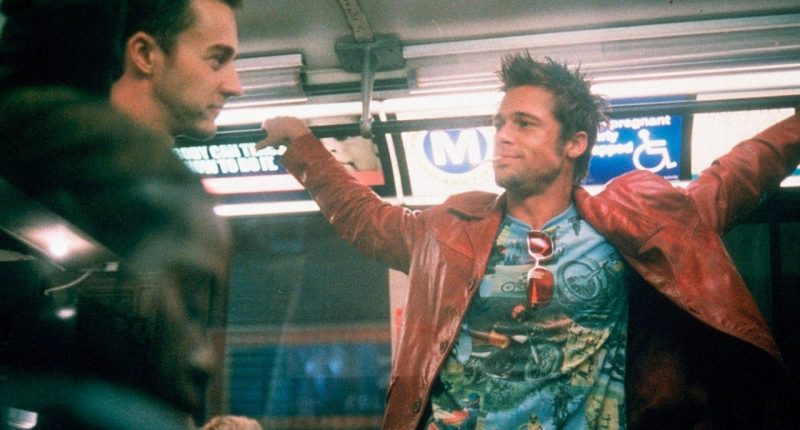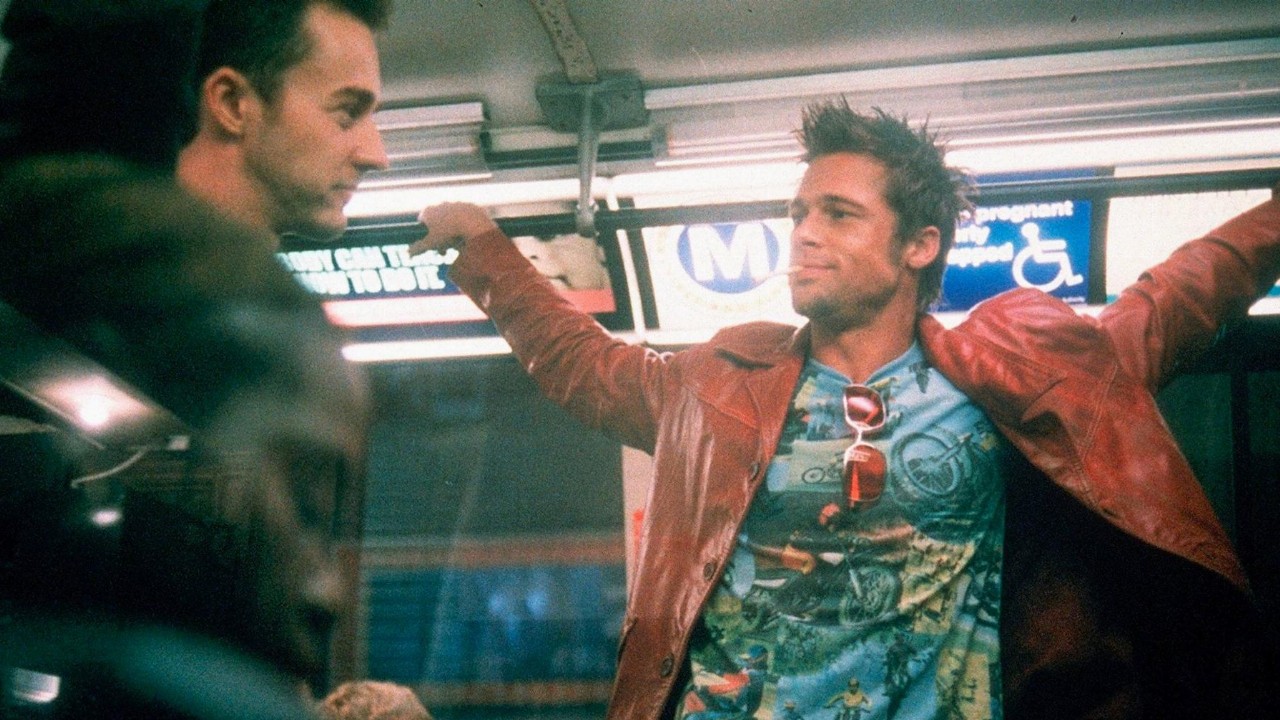“We’re the middle children of history, man. No purpose or place. We have no Great War. No Great Depression. Our great war is a spiritual war… Our great depression is our lives. We’ve all been raised on television to believe that one day we’d all be millionaires, and movie gods, and rock stars, but we won’t. We’re slowly learning that fact. And we’re very, very pissed off.”
Fight Club, 1999
A few weeks ago a failing computer games business was aggressively traded by an online flash mob.
And the legacy business press lost their collective minds.
The Australian Financial Review alone published 109 articles referencing GameStop since January 26. A legion of journalists and pontificators clamouring to add something new. Acres of print and pixels. Eulogies to the death of capitalism. Online barbarians at the gate.
But not one understood the real story. It’s this:
“I remember when the housing collapse sent a torpedo through my family. My father’s concrete company collapsed almost overnight. My father lost his home. My uncle lost his home. I remember my brother helping my father count pocket change on our kitchen table. That was all the money he had left in the world. While this was happening in my home, I saw hedge funders literally drinking champagne as they looked down on the Occupy Wall Street protesters. I will never forget that.
My father never recovered from that blow. He fell deeper and deeper into alcoholism and exists now as a shell of his former self, waiting for death.
This is all the money I have and I’d rather lose it all than give them what they need to destroy me. Taking money from me won’t hurt me, because I don’t value it at all. I’ll burn it down just to spite them.
This is for you, Dad.“
If you’re reading this you know enough about GameStop that I don’t need to tell you about GameStop. Instead I’ll explore the signal in the noise. There are two. The first is weak and faint and about the failure of much of business journalism. The second is loud and deafening and about the failure of all of us to understand how the world is now.
The weak and faint signal is why the legacy business press missed what the GameStop saga is all about.
A decade of restructuring and right-sizing — meaning you’re sacked — means business news rooms are depleted. Voices are less diverse. Perspective begins to narrow. And one of the side effects is much of the legacy business press thinks the market is driven by big companies and big institutions.
They think retail traders are mums and dads. Or simple people. Like nurses who don’t know what they are doing and need a broker to educate them. (Yes this patronising drivel ran this week from an organ that should know better. And I’d point out no nurse has ever been prosecuted by ASIC so I think a nurse’s opinion is just as good as any market commentator.)
Covering big companies and big institutions drives the Beyonce effect. The Beyonce effect is what entertainment journalists face. As media fragments artists — business brands in their own right — no longer need legacy media to sell their streams. Sell their shows. Sell their souls. Instead they can go direct. They can use social media and digital channels to build their own audience.
So once upon a time Beyonce’s people would spend time and money cultivating the entertainment press. Beyonce would be available. And yes she’ll do the 6am radio slot. And yes she’ll dress as a bunny for the Easter special. And yes she’ll pose like this for that accidental paparazzi shot. A lot of yes. That’s how it worked.
Then along comes digital. In 2016 Beyonce released Lemonade. No one saw it coming. 300 million streams, 2.5 million sales, the biggest selling album of 2016 and no bunny suit in sight. Beyonce 1. Legacy press 0.
So the relationship with the press changed. Artists don’t need the press. But the press needs access. So the power balance shifted. For business journalism as well. Business journalism became entertainified. The tone changed. Less shine a light. More lets make the press release shine brighter.
What does this mean? It means the legacy business press still sits by a fax, waiting for it to whir, with some announcement from the ASX 200. And then call a source at a fund. Then a broker. Whipped into a breathy confection of reporting. With a layer of subscription driven click bait.
And the fact there are 2,400 listed ASX businesses, and a third of the stock market — over $800 billion — is held by mums and dads (and probably a few nurses) is lost in the noise. And this cohort, the real drivers of the market, get their information online and on social media. And they didn’t read the 109 stories from one newspaper alone telling them what they should do.
The result: The legacy business press didn’t have a clue. And didn’t see this coming. Those 109 articles weren’t written for readers. They were written for themselves. So they could try and make sense of what just happened.
The second signal is loud and deafening. Its about the pain and anger of a generation of young men online who feel they’ve lost. Because they have.
A great business story is not about balance sheets and rich lists. Its about people. All great stories are about people.
And the people stories behind the GameStop drama are raw and real.
Stories of pain, and suffering and exclusion.
GameStop stories surfaced online were about ruined livelihoods and whole families spiralling into drug, alcohol and gambling addictions; of fathers attempting suicide by gunshot in the woods and children forced to “carry his blown-apart body to the house,” only for him to finish the job soon after by throwing himself in front of a train — all while Wall Street enjoyed the luxury of private jet-saving government bailouts.
And the story with weight, the story that channelled the anger of so many was: Who was made to pay? Who went to jail after the global financial crisis?
The answer. No one goes to prison.
Except for Bernie Madoff. But guess what. He went to prison for stealing from rich people. The system is rigged.
And people feel this. It took until 2015 for household incomes in the U.S. to approach pre-financial crisis levels. Even then, the median amount was US$70,200 — no higher than its level in 2000 — marking a 15-year period of stagnation never before seen in the last 50 years. Meanwhile, average house prices in the U.S. have soared more than 100 per cent since the turn of the century. Young people have less money. But the dream of a house turned into a nightmare of renting and couch surfing.
And while the USA unemployment rate has been steadily trending downward since 2009 — ignoring the obvious outliers brought on by the COVID-19 pandemic — at the very best of times it hovered around 3.5 per cent, meaning that on any one day at least 7.3 million American adults had no source of income, never mind the massive proportion of workers who classify as low-income earners.
And those jobs are insecure. Gig economy. Delivering food. Driving ubers. Short term contracts. Hard to plan. Delaying having children. Just can’t do Job+House+Kids. And a new social class, The Precariat, is born.
But not for everyone. From 2001 to 2016, the expansive gap between rich and poor only continued to widen. Upper-income families were the only tier in the U.S. able to build on their wealth, adding 33 per cent to the median figure. Middle-income families, on the other hand, saw their wealth fall 20 per cent during the same period and lower-income families experienced a drop of 45 per cent.
But it’s not just the United States. According to the OECD Centre for Opportunity and Equality, income inequality among developed nations is now at a 50-year high, where the average income of the richest 10 per cent is roughly nine times that of the poorest 10 per cent, up from seven times just 25 years ago.
Bill Gates, now the world’s third-richest person, gets it. While the irony is that he might have been yelling from atop his $176 billion fortune, he got the pain of the online unwashed more than any journalist:
“Most people get almost all of their income from salary and hourly work, which is taxed at a maximum of 37 per cent. But the wealthiest generally get only a tiny percentage of their income from a salary; most of it comes from profits on investments, such as stock or real estate, taxed at 20 per cent if they’re held for more than a year.
That’s the clearest evidence I’ve seen that the system isn’t fair. I don’t see any reason to favour wealth over work the way we do today.”
What the financial crisis so aggressively demonstrated to a legion of young men online, with all the grace and meaning of a well-practiced sucker punch, was that they lost.
It was the truck drivers, mechanics, teachers, builders and cleaners — the ones who had nothing to do with Wall Street’s money-swindling schemes — that lost the most.
So it’s little wonder that people were angry.
The GameStop story is like an alternate narrative to Chuck Palahniuk’s popular 1996 novel Fight Club. A deeply alienated, depressed and largely forgotten group of young men who rise up with no other objective than to burn it all down, either legally, illegally or some law-dodging mix of the two.
GameStop was just a gun. And as Palahniuk said, “all a gun does is focus an explosion in one direction.”
The GameStop generation don’t want money. That’s not the point. They want justice and connection. It’s the same reason people join churches, form book clubs or take drugs: social capital — “the networks of relationships among people who live and work in a particular society that enable the society to exist and be successful.” Bowling Alone, the children of Puttnam. And this is the path to radicalisation. It leads to Antifa. To the Proud Boys. And GameStop.
All these people wanted, perhaps for the first time, was to be part of something bigger than their lives. And If that meant reclaiming some of what they and their families had lost 13 years ago, then even better.
At this point it would be logical to suggest that the Reddit-GameStop debacle starts and ends as a tale of revenge spawned from the injustices of the Great Recession.
But I’m willing to go a step further. It seems to me that the Reddit leader and his band of outcasts aren’t just sick of the Tom Ford-suited charlatans – they’re sick of everything.
While America might be most vocal about it, the truth is that every country was built on the idea that we were born free to strive for a better and more just future. But civil society in the Twenty-first Century might be further from that dream than it’s ever been. It doesn’t take an economic genius to see that, regardless of your own personal views, life really is just a will-sapping marathon in pursuit of money — like an all-out dress rehearsal, day after day, for an opening night that never comes. Which is fine. That’s just how a capitalist society works. But isn’t there more?
Wall Street isn’t the core problem, but for many it’s a symbol of the real issue. It seems the world’s modern banking system wraps its tentacles around our heads and sucks us dry until the day we drop off this mortal coil. All it takes is to miss a few past-due notices on that tiny loan you used to buy your son a bike, and suddenly you owe $50,000 and two-thirds of your soul.
This is what people hate: the fact that banks and the wider corporate landscape have made human existence a trap-laden balancing act — slip anywhere, and it’s a long fall down to an inescapable pit filled with bears.
And they also hate corruption; that governments and corporations are two ends of the same self-serving stick.
They hate 100 million daily commercials about the next life-changing doo-whacky.
They hate twenty-dollar pints of beer.
They hey hate get-rich-quick scams.
They hate celebrity know-it-alls.
They hate the climbing cost of living.
They hate power-hungry cops with a fetish for violence.
They hate that the internet once promised to set us free but turned into endless porn and curated perfect lives
But most of all, they hate the way that no one listens.
And then came Gamestop.
And everyone listened.
But no one really understood.
Selah. Ponder that.








